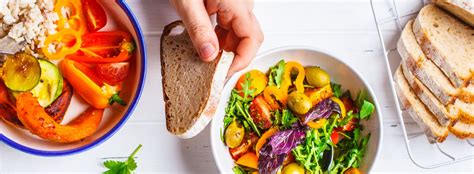As we age, maintaining optimal health becomes increasingly important, and a balanced diet plays a crucial role in achieving this goal. For seniors, focusing on nutritious and easy-to-prepare meals can enhance overall well-being and quality of life. This article provides essential tips for creating healthy meals that are not only delicious but also tailored to meet the unique dietary needs of older adults. From incorporating fresh fruits and vegetables to choosing protein-rich foods for muscle maintenance, we will explore various aspects of senior nutrition. Additionally, we will offer simple meal planning and preparation ideas to help make nutritious eating both achievable and enjoyable.
Delve into this topic with ujocis.net for a comprehensive understanding.
1. Importance of Balanced Nutrition for Seniors
As we age, our nutritional needs evolve, making balanced nutrition more crucial than ever. For seniors, a well-rounded diet supports not only physical health but also mental and emotional well-being. Proper nutrition helps maintain muscle mass, bone density, and cognitive function, reducing the risk of chronic diseases like diabetes and heart disease. Balanced meals also contribute to better energy levels and overall vitality, which are essential for maintaining independence and a high quality of life. Seniors often face challenges such as reduced appetite or dietary restrictions, making it essential to prioritize nutrient-dense foods. By focusing on a variety of food groups—fruits, vegetables, lean proteins, whole grains, and healthy fats—seniors can meet their specific nutritional requirements and enjoy the benefits of a healthier, more active lifestyle.

2. Incorporating Fresh Fruits and Vegetables
Incorporating fresh fruits and vegetables into a senior’s diet is essential for maintaining good health. These nutrient-dense foods provide vital vitamins, minerals, and antioxidants that help support immune function, reduce inflammation, and prevent chronic diseases. Fruits and vegetables are also high in fiber, which aids in digestion and can help manage weight by promoting a feeling of fullness.
For seniors, choosing a variety of colorful produce ensures a broad spectrum of nutrients. Dark leafy greens like spinach and kale are rich in vitamins A, C, and K, as well as calcium and iron. Berries, such as blueberries and strawberries, offer powerful antioxidants that support cognitive health. Vegetables like bell peppers and carrots are excellent sources of vitamins and minerals that contribute to overall well-being.
To make it easier to incorporate these foods into daily meals, consider preparing simple salads, adding fruits to yogurt, or including vegetables in soups and stews. Keeping pre-cut veggies and fresh fruit on hand can also encourage more frequent consumption. By making fruits and vegetables a staple in their diet, seniors can enjoy enhanced health benefits and a more vibrant lifestyle.

3. Protein-Rich Foods for Muscle Maintenance
Protein-rich foods are crucial for maintaining muscle mass and overall strength as we age. For seniors, adequate protein intake helps counteract the natural muscle loss that occurs with aging, known as sarcopenia. Consuming protein supports muscle repair and growth, enhances physical function, and improves balance, which is essential for reducing the risk of falls and injuries.
Excellent sources of protein include lean meats such as chicken, turkey, and fish, which provide high-quality protein with minimal saturated fat. For those who prefer plant-based options, beans, lentils, and tofu are great choices that offer substantial protein and additional health benefits. Eggs and dairy products, like Greek yogurt and cottage cheese, also contribute valuable protein along with other important nutrients such as calcium and vitamin D.
Incorporating protein into every meal can be simple. For example, add beans to salads, include eggs in breakfast dishes, or opt for grilled chicken or fish for dinner. Additionally, using protein supplements, if needed and advised by a healthcare provider, can help meet daily protein requirements.
Balancing protein intake with other nutrients, such as carbohydrates and healthy fats, ensures a well-rounded diet that supports muscle maintenance and overall health, promoting vitality and independence in later years.

4. Easy-to-Prepare Whole Grain Options
Whole grains are a valuable component of a senior’s diet, offering numerous health benefits including improved digestion and reduced risk of chronic diseases. They are rich in fiber, which supports healthy bowel function, helps manage weight, and can lower cholesterol levels. Whole grains also provide essential nutrients such as B vitamins, iron, and magnesium, contributing to overall well-being.
Choosing easy-to-prepare whole grain options makes incorporating these foods into daily meals more manageable. Oats are a versatile choice and can be used in oatmeal, overnight oats, or added to smoothies. Brown rice and quinoa are excellent staples that can be prepared in bulk and used as a base for various dishes. Whole grain breads and cereals offer convenient options for quick meals and snacks.
To add variety, consider whole grain pasta in salads or as a side dish, and explore whole grain tortillas for wraps or quesadillas. For a nutritious breakfast, whole grain waffles or toast with a topping of fresh fruit can be both satisfying and beneficial.
By including these easy-to-prepare whole grain options in their diet, seniors can enjoy the benefits of enhanced nutrition and sustained energy, supporting their overall health and daily activities.
5. Healthy Fats: Sources and Benefits
Incorporating healthy fats into a senior’s diet is essential for maintaining heart health, brain function, and overall well-being. Unlike saturated and trans fats, healthy fats provide numerous benefits and support various bodily functions. They help absorb fat-soluble vitamins, such as A, D, E, and K, and contribute to maintaining healthy skin and joints.
Good sources of healthy fats include avocados, which are rich in monounsaturated fats and offer a creamy texture for salads and sandwiches. Nuts and seeds, such as almonds, walnuts, and flaxseeds, provide essential fatty acids and can be easily added to meals or eaten as snacks. Olive oil is another excellent source of monounsaturated fats and can be used for cooking or as a salad dressing.
Fatty fish, such as salmon and mackerel, are high in omega-3 fatty acids, which support heart health and cognitive function. Including these healthy fats in a senior’s diet can enhance flavor and satisfaction while promoting overall health. Balancing these fats with other nutrients ensures a well-rounded diet that supports long-term vitality and well-being.
6. Hydration Tips and Fluid-Rich Foods
Proper hydration is crucial for seniors, as it supports overall health and helps prevent dehydration, which can lead to various health issues such as urinary tract infections, constipation, and impaired cognitive function. Drinking sufficient fluids aids in digestion, maintains skin health, and supports kidney function.
To stay hydrated, seniors should aim to drink water regularly throughout the day. In addition to plain water, incorporating fluid-rich foods into the diet can significantly contribute to overall fluid intake. Fruits such as watermelon, oranges, and strawberries have high water content and are refreshing options. Vegetables like cucumbers, celery, and bell peppers also provide hydration along with essential nutrients.
Soups and broths are excellent ways to increase fluid intake, offering warmth and nourishment while boosting hydration. Herbal teas and diluted fruit juices can also be included but should be consumed in moderation to avoid excess sugar.
For those who have difficulty drinking large amounts of fluids, adding a splash of flavor to water with lemon, lime, or cucumber slices can make it more appealing. Maintaining adequate hydration helps support all bodily functions and promotes a healthier, more active lifestyle for seniors.
7. Simple Meal Planning and Prep Ideas
Effective meal planning and preparation can make healthy eating easier and more enjoyable for seniors. To simplify the process, start by creating a weekly meal plan that includes a variety of nutrient-dense foods. This can help ensure balanced nutrition and reduce the likelihood of last-minute unhealthy choices.
Batch cooking and meal prepping are excellent strategies. Prepare and store large batches of grains, lean proteins, and vegetables that can be easily mixed and matched throughout the week. Use clear, labeled containers to keep meals fresh and organized.
Incorporate easy recipes that require minimal effort, such as one-pan dishes or slow-cooker meals. These can save time and make cooking more manageable. For convenience, keep a stock of frozen fruits and vegetables on hand, which can be quickly added to meals.
By planning ahead and preparing meals in advance, seniors can enjoy nutritious, home-cooked meals with less daily effort, supporting their overall health and well-being.
8. Adjusting Portions and Serving Sizes for Senior Nutrition
Adjusting portions and serving sizes is essential for meeting the nutritional needs of seniors while maintaining a balanced diet. As metabolism slows with age, seniors often require fewer calories but still need the same, if not more, nutrient-dense foods to meet their nutritional requirements. Proper portion control helps prevent overconsumption and supports healthy weight management.
To adjust portion sizes, focus on the quality of the food rather than just the quantity. Aim to fill half of the plate with vegetables and fruits, one-quarter with lean proteins, and one-quarter with whole grains. This balanced approach ensures that each meal provides essential nutrients without excess calories.
It’s also important to listen to the body’s hunger and fullness cues. Eating smaller, more frequent meals can be beneficial for those with reduced appetites or digestive issues. Using smaller plates and bowls can help control portions and prevent overeating.
For personalized guidance, seniors should consult with a healthcare provider or a registered dietitian. They can provide tailored recommendations based on individual health needs, activity levels, and dietary restrictions. Adjusting portions and serving sizes effectively can contribute to better health outcomes and a more enjoyable eating experience.
Maintaining a nutritious diet is key to promoting health and vitality in seniors. By incorporating fresh fruits and vegetables, protein-rich foods, whole grains, and healthy fats, seniors can enhance their overall well-being and support muscle maintenance. Simple meal planning and preparation can make healthy eating more accessible, while adjusting portions and serving sizes ensures balanced nutrition. Prioritizing hydration and including fluid-rich foods further supports overall health. With these practical tips, seniors can enjoy delicious, nutritious meals that contribute to a healthier, more active lifestyle.
ujocis.net

